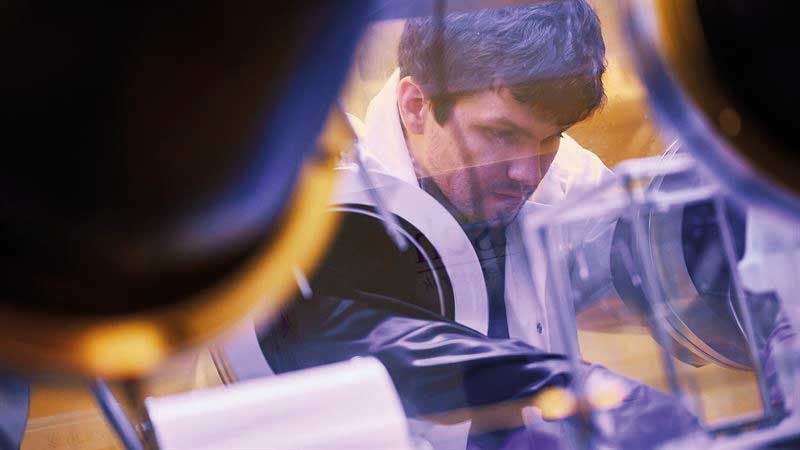New Findings Could Lead to Safer, More Stable Metal Batteries
Metal batteries have the potential to deliver more energy, at a lower weight, than the popular lithium-ion battery. The problem, however, is that the technology currently has too short a lifespan due to the highly reactive nature of the lithium metal within these batteries.
Lithium-ion batteries are the most popular battery option today, but in a society facing widespread electrification, new battery technologies are needed that can provide more energy per weight or volume. Therefore, attention is now turning to batteries with metal electrodes, where the graphite electrode of the lithium-ion battery has been replaced by lithium metal. For example, solid-state batteries, seen as one of the most promising upcoming technologies, use a metal electrode and provide cells that deliver a greater amount of energy than today's lithium-ion battery. However, metal electrodes suffer from one problem – the metal is reactive, which means it reacts easily with the surroundings and it is difficult to create a long-lasting cell.
Metal batteries are one of the focus areas for Professor Aleksandar Matic's research group at the Department of Physics at Chalmers University of Technology, Sweden, They were the first research team to use 3D X-rays to monitor how the lithium in a lithium metal battery behaves in real time during use. These experiments have led to new insights into the crucial problem that arises in this type of battery – namely that the lithium forms ‘dendrites’, or uneven structures during charging and discharging, which over time affects the stability and function of the battery.
“We work in a very inert environment, but even there the metal finds something to react with and a surface layer is formed, which affects how the metal behaves in the battery. However, we have seen that these reactions can actually be avoided by very simple means: instead of dealing with the reactive electrode materials outside the battery, we create our electrode inside the battery through a process called electroplating. This allows us to avoid the reactive metal reacting with the environment, which is an advantage as we get a more predictable and stable electrode,” says Josef Rizell, doctoral student at the Department of Physics at Chalmers.





![EMR_AMS-Asset-Monitor-banner_300x600_MW[62]OCT EMR_AMS-Asset-Monitor-banner_300x600_MW[62]OCT](/var/ezwebin_site/storage/images/media/images/emr_ams-asset-monitor-banner_300x600_mw-62-oct/79406-1-eng-GB/EMR_AMS-Asset-Monitor-banner_300x600_MW-62-OCT.png)



